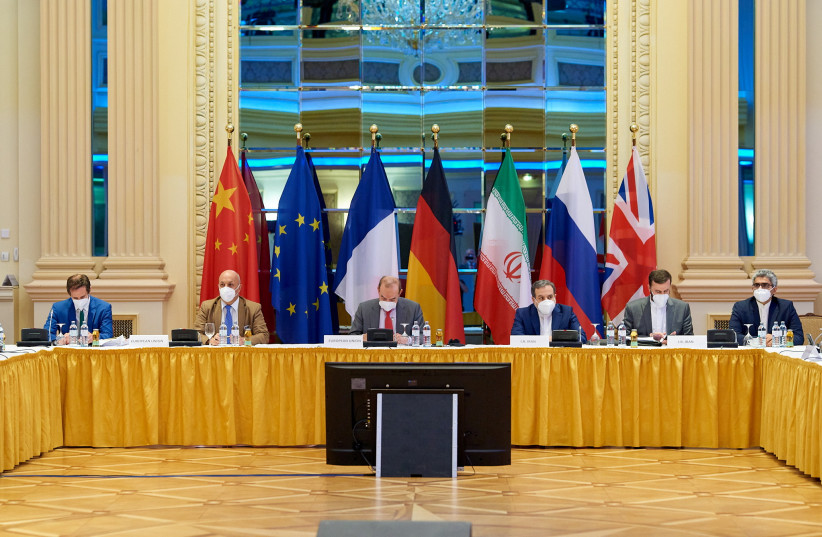A return to the Iran deal that was negotiated in 2015 seemed impossible just a few weeks ago.
After a year of claims that the Iranians had to come to some sort of an agreement or the window of opportunity would close, it appeared that the ayatollahs in Tehran were too far away from the West in negotiating the return to what is known as the Joint Comprehensive Plan of Action.
However, new reports this past week claim that a final text of a deal has been hammered out.
Is the Iran deal finalized?
We remain skeptical about this effort to finalize a deal, but we hope that whatever is involved in the final talks and any agreement that might be made will include measures that ensure Israel’s and the region’s stability and security. Israel relies on a close alliance with the United States and good relations with the Biden administration.
We support the administration’s attempts to provide security for the region, while expecting that Iran will never be able to develop nuclear weapons.
“What can be negotiated has been negotiated, and it’s now in a final text…However, behind every technical issue and every paragraph lies a political decision that needs to be taken in the capitals.”
European Union’s High Representative of the Union for Foreign Affairs Josep Borrell
The European Union’s High Representative of the Union for Foreign Affairs Josep Borrell explained this week that “what can be negotiated has been negotiated, and it’s now in a final text…However, behind every technical issue and every paragraph lies a political decision that needs to be taken in the capitals.”

The US is also on board and it seems that right now the Iranian regime is holding things up as it continues to try and wring more concessions from the West.
These kinds of concessions are concerning, as is the overall nature of the deal. Iran wants its Islamic Revolutionary Guard Corps, which funds and arms terror groups around the region, to be removed, for example, from US sanctions lists. It also wants free rein for its missile and drone programs.
A concern: Iran has enriched large amounts of uranium
Most concerning has always been the fact that Iran has advanced centrifuges and has enriched large quantities of uranium to high levels. It has been enriching the uranium far beyond the agreements in the 2015 deal.
Iran argues that because the US violated the terms of the deal it too had the right to do so.
The major problem is that every day Iran enriches it grows closer to being able one day to build a nuclear bomb.
In fact, Iranian officials have recently hinted that they already have all the components and material needed to build a bomb, but they have so far decided not to.
This is problematic, because it means even if a new deal or a return to the old deal is agreed upon, Iran can always blackmail the West by using the enriched uranium card.
On another note, the overall deal has always been a concern because after a certain number of years, many of the safeguards designed to stop Iran from developing a nuclear weapon have fallen to the side.
Have just postponed the inevitable of a nuclear Iran?
The deal in 2015 appeared to merely postpone the inevitable. It is now 2022 and any deal that might be signed now would seem to just kick the can down the road in terms of eventually having to confront a nuclear Iran.
The Russian invasion of Ukraine and tensions between the US and China have complicated an already difficult situation.
The US prefers not to have to confront Iran at the same time, or deal with a new Iran-Israel crisis. The recent battles in Gaza against Palestinian Islamic Jihad seem to have been aimed at preempting the Iranian proxy’s ability to threaten Israel.
Nevertheless, that brief conflict shows that even the smallest of Iran’s proxies is a threat. What about the bigger threat of Hezbollah and groups like the Houthis in Yemen or Iranian-backed militias in Iraq and Iran’s entrenchment in Syria?
Iran has openly bragged about how it is pushing the US out of the region and how it can threaten Israel from a number of angles and fronts. The nuclear front is just one of those problems. The deal being discussed today must take into account Iran’s threats to the region and Israel.
